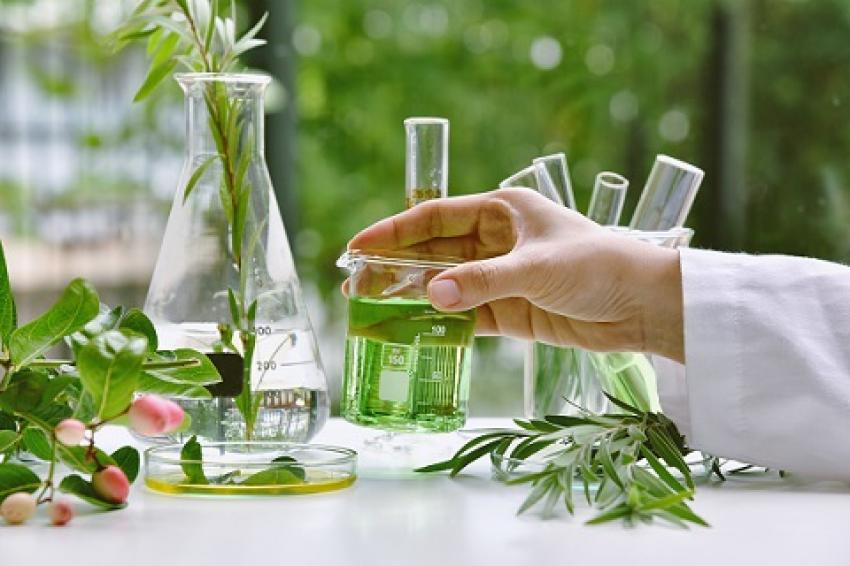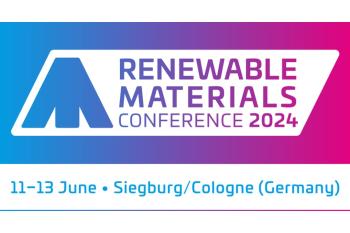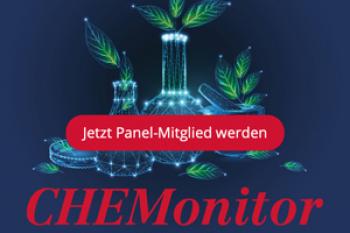Sustainable Synthesis of Biochemicals
Circa Group’s Journey to Commercialization of Platform Chemical LGO and Bio-based Solvent Cyrene
Non-food biomass is the world’s most abundant natural bio-based resource and every year, millions of tons of renewable cellulose are underutilized or wasted. This includes waste cellulose from forestry, paper mills, crops and food processing. There is a clear opportunity to produce bio-based, non-toxic, high-performance alternatives from the most abundant polymer in the world.
Globally, the chemical industry is under increasing regulatory pressure and hazardous chemicals are at risk of being banned once suitable alternatives are available. Yet replacing traditional chemicals with bio-based alternatives is challenging and resource-consuming. Bringing new products to the market involves extensive development, process trialing, optimization, and product regulatory approvals.
From R&D to Commercial Scale with Furacell
When Circa was founded in 2006, the company’s aim was to convert non-food cellulose into high-performance, renewable chemicals, at scale – extracting value from waste biomass and addressing a gap in the market for better, more sustainable materials.
Circa’s Furacell technology was developed in 2009 and has been patented and fine-tuned for over ten years, across five pilot plants in Australia. Throughout its development, the original manufacturing philosophy has been maintained even as production volumes have increased: tolerance of different cellulose-based feedstocks (sawdust, bagasse, straw etc.) and near atmospheric pressure, as well as being as environmentally benign and energy-neutral as possible.
Extensive research done by Circa and its partners worldwide identifies a vast range of bio-based derivatives which can be produced from levoglucosenone (LGO, an α β-unsaturated ketone with protected aldehyde functionality), including Cyrene, a low-toxicity, bio-based dipolar aprotic solvent — and Circa’s first commercial-scale biochemical.
From biomass using the Furacell process, the company produces LGO, a versatile platform chemical and building block, as well as biocoal. The other main by-product is water. Circa’s fifth pilot plant FC5, a joint venture between Circa and Norwegian pulp and paper company Norske Skog, went online in 2019. Located in Tasmania, Australia, it is the first and only plant producing LGO at the ton scale. The next plant, ReSolute, is currently under construction in France as part of an EU Horizon 2020 flagship project. ReSolute will produce 1,000 tons of green solvent Cyrene directly from LGO.
The biocoal produced as a by-product of the Furacell process is a valuable product in its own right which is in high demand. Biocoal is a form of charcoal produced by the pyrolysis of bio-waste, which has a number of uses including as activated carbon or a renewable or smokeless solid fuel.
A new Bio-based Solvent, Ready for Market
Cyrene, a cyclic ketone containing two protons alpha to the carbonyl group, is an alternative to traditional, fossil-based solvents. The Furacell process reduces the carbon footprint of its production up to 80% compared to similar petroleum-based solvents.
Developed by Circa in conjunction with the Green Chemistry Centre of Excellence (GCCE), Cyrene has a unique property set, including viscosity, surface tension and polarities, which makes it extremely well-suited to the production of advanced materials and synthesis of small molecules. All results to date indicate that Cyrene is a safer and more sustainable, high-performance alternative to traditional dipolar aprotic solvents.
The global dipolar aprotic solvent market is currently estimated at around one million tons and is currently mostly served by unsustainable and toxic fossil-based solvents such as NMP and DMF. Governments and industries worldwide are looking to find substitutes to these chemicals which are harmful to human health and the environment.
Cyrene is widely acknowledged as the only viable, low-toxicity and sustainable alternative. It also offers a dramatic reduction in waste creation both during production and at end-of-life. Not only is Cyrene better for the environment and less toxic than traditional solvents, it has also been shown to outperform them in many applications.
Extensive trialing of Cyrene by industrial and academic researchers has shown that it outperforms traditional dipolar aprotic solvents in 20-30% of applications. Specific processes in which Cyrene has shown significant advantages include the production and printing of graphene, manufacture of water filtration membranes, production of polymers (including bio-based polymers) and synthesis of fine chemicals.
Investing in a new Commercial Plant
Cyrene’s development was aided by access to EU funding — in 2017, Circa joined ReSolve, a € 4.3-million EU project focused on replacing traditional, fossil-based solvents. Led by the University of York, ReSolve used Furacell as one of two core technical streams to demonstrate and produce new, renewable solvents.
Then in 2020, Circa led a consortium which was awarded the EU Horizon 2020 Flagship project ReSolute to develop the first commercial plant to produce Cyrene. The plant will be located in Carling Saint-Avold in Eastern France and will have a production capacity of 1,000 tons of Cyrene per year. Engineering work has started, and the estimated commissioning date is the end of 2022.
Future Plans
Future applications of LGO derivatives include pharmaceuticals, agrochemicals, graphene, electronics, batteries, paints and coatings, flavors and fragrances as well as polymers.
With the ReSolute 1,000-tons plant under construction, a detailed study for a 5,000-tons plant, completed with Norske Skog, provides further support on the company‘s trajectory for plants of up to 50,000 tons.
Increased global regulation is creating the conditions for more sustainable chemicals like LGO and Cyrene to flourish and we are clearly seeing increasing demand from consumers and brand owners who are pushing towards more sustainable chemicals. Circa is developing chemicals at scale which are more sustainable and safer for people and the environment, contributing to a more circular economy.
Author
Jason E. Camp became CTO of Circa Group in January 2020. He received his BS degree in Biochemistry from the University of California, Davis, in 2000. Afterwards he studied Organic Chemistry at the Colorado State University and earned his PhD from Penn State University in 2007. Before joining Circa Group, he had several engagements as researcher and lecturer, and he is a committee member of SCI’s Fine Chemicals Group
Circa Group
Bio-based chemicals company Circa Group converts waste biomass into advanced, renewable chemicals with its proprietary Furacell process. Circa’s product portfolio includes flavors, fragrances, agrochemical and pharmaceutical building blocks, as well as bio-solvents like Cyrene, an alternative to traditional solvents.
In March 2021, fifteen years after its creation, Circa has gone public and raised approximately €56 million to fund the construction of a new plant on the Carling Saint-Avold site owned by Total in Eastern France – part of the EU Horizon 2020 Bio-based Industries Joint Undertaking flagship project ReSolute — and to boost its manufacturing capabilities and commercialization of the levoglucosenone biomolecule platform.
Downloads
Kontakt
Circa Group Ltd
Bio21 Molecular Science & Biotechnology Institute, 30 Flemington Road, Parkville
VIC 3052
Australien















